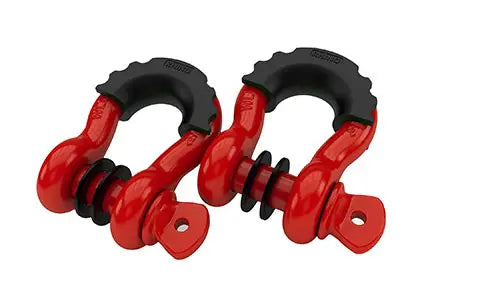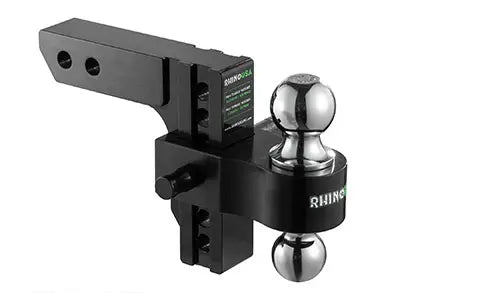Managing fleet costs effectively can be the difference between a thriving business and one that struggles to stay afloat. By adopting a strategic approach, you can significantly reduce expenses and enhance operational efficiency. Whether you're dealing with fuel costs, vehicle maintenance, or driver training, every aspect of your fleet management holds potential for savings.
Prioritizing vehicle maintenance is essential to avoid unexpected breakdowns and costly repairs. Regular check-ups ensure your vehicles run smoothly and extend their lifespan. Another strategy is streamlining operations, which involves cutting unnecessary steps and making your processes more efficient.
Investing in driver training can also lead to substantial savings. Educating your drivers on fuel-efficient practices and safe driving habits not only conserves fuel but also minimizes wear and tear on your vehicles. With these strategies, you're well on your way to managing a cost-efficient and effective fleet.
Implement Cost-Effective Fleet Management Software
You can optimize your fleet's efficiency and significantly reduce costs by using fleet management software. Focus on automation and real-time tracking to enhance control over your fleet operations.
Automation of Fleet Operations
Automating various fleet operations helps reduce manual errors and saves time. Fleet management software can automate tasks such as maintenance scheduling, fuel management, and route planning.
Maintenance Scheduling: The software can automatically schedule vehicle maintenance based on usage, preventing unexpected breakdowns and costly repairs.
Fuel Management: Automated fuel tracking helps monitor consumption, identify inefficiencies, and minimize expenses.
Route Planning: Optimized route planning based on real-time traffic data ensures timely deliveries and reduced fuel consumption.
Real-Time Tracking Features
Real-time tracking features offer substantial benefits, such as improved vehicle security, enhanced driver performance, and better compliance with regulations.
Vehicle Security: Real-time GPS tracking allows you to monitor vehicle locations and receive alerts in case of unauthorized usage.
Driver Performance: You can monitor driving behaviors like speed, harsh braking, and idling, helping you implement training programs to improve efficiency.
Regulatory Compliance: Real-time data assists in maintaining compliance with legal and safety standards, reducing the risk of fines and legal issues.
Implementing these features in your fleet management software can lead to significant cost reductions and streamlined operations.
Optimize Vehicle Maintenance
Effective vehicle maintenance reduces costs and ensures operational efficiency. Key strategies include establishing routine service schedules and implementing predictive maintenance techniques.
Routine Service Schedules
Routine service schedules are essential for maintaining vehicle health. Regularly scheduled checks for oil changes, tire rotations, and brake inspections prevent unexpected breakdowns. By following manufacturer-recommended service intervals, you can avert potential issues that cause downtime and expensive repairs.
Creating a maintenance checklist helps track completed tasks and future service needs. Utilize software to automate reminders for upcoming maintenance, ensuring no critical service is missed. Training drivers to spot and report early signs of wear or malfunction also plays a significant role in upkeep.
Predictive Maintenance Techniques
Predictive maintenance uses data analysis to foresee and address issues before they escalate. This involves monitoring vehicle performance indicators such as engine diagnostics, fuel consumption, and component wear.
Telematics systems collect real-time data, allowing you to identify trends and predict maintenance needs accurately. Implementing these technologies helps you schedule maintenance precisely when needed rather than following a fixed schedule, optimizing both cost and uptime.
Additionally, consider integrating AI-driven tools that analyze historical data to predict future failures. This proactive approach minimizes disruptions and reduces costly emergency repairs, keeping your fleet in peak condition.
Maximize Fuel Efficiency
Fuel efficiency plays a pivotal role in reducing fleet operational costs and promoting sustainability. Implementing driver training programs and investing in fuel-efficient technologies are essential strategies.
Driver Training Programs
Proper driver training programs can markedly improve fuel efficiency in your fleet. Train drivers to adopt eco-driving practices, such as maintaining steady speeds, reducing idling time, and anticipating traffic flow. These habits minimize fuel consumption significantly.
Regular workshops and seminars on fuel-saving techniques are worthwhile investments. Use telematics data to monitor drivers' behavior and provide personalized feedback. Incentivize fuel-efficient driving by rewarding top-performing drivers.
Implementing a standardized training program ensures consistency across your fleet. Educating your drivers about efficient driving techniques can lead to sustained reductions in fuel use, contributing to lower operating costs and environmental benefits.
Investment in Fuel-Efficient Technologies
Investing in advanced fuel-efficient technologies can deliver substantial cost savings. Equip your fleet with vehicles that use hybrid or alternative fuels. These options typically offer better fuel efficiency compared to conventional combustion engines.
Telematics systems are crucial tools for optimizing fuel usage. They provide real-time data on vehicle performance and fuel consumption. Utilize this data to analyze trends and identify areas for improvement. Implement automated reminders for maintenance to ensure vehicle efficiency.
Adopting aerodynamic designs and low-resistance tires can also improve fuel mileage. Innovations like automatic engine shut-off and regenerative braking enhance fuel efficiency. Examine the return on investment for each technology to prioritize the most effective options for your fleet.
Streamline Routing and Dispatch
By implementing dynamic routing software and effective load planning, you can significantly enhance efficiency, reduce costs, and improve service quality. These strategies help to ensure optimal distribution of resources and minimize wasted time and fuel.
Dynamic Routing Software
Dynamic routing software uses real-time data to optimize delivery routes. It helps you plan the most efficient paths for your vehicles, considering factors like traffic, weather, and road conditions. This ensures that your fleet operates smoothly, minimizing delays and reducing fuel consumption.
In addition, dynamic routing software allows for real-time adjustments. If there are unexpected road closures or traffic jams, the software recalculates routes on the fly, keeping your deliveries on schedule. This adaptability not only saves time but also enhances reliability and customer satisfaction.
Effective Load Planning
Effective load planning ensures that each vehicle in your fleet is utilized to its full capacity. By analyzing the weight and volume of goods, along with delivery schedules, you can create efficient load plans that reduce the number of trips required. This not only saves fuel but also reduces wear and tear on vehicles.
Incorporating advanced load planning tools can further enhance this process. These tools use algorithms to determine the best way to load vehicles, balancing weight distribution and maximizing space. Proper load planning minimizes the risk of overloading, which can lead to increased maintenance costs and compliance issues.
Leverage Fleet Analytics and Data
Harnessing fleet analytics and data can greatly enhance your decision-making and operational efficiency. By focusing on key performance metrics and identifying cost-reduction opportunities, you can optimize your fleet's performance and financial health.
Performance Metrics Analysis
Key performance metrics are essential for monitoring the health of your fleet. Metrics such as fuel efficiency, vehicle utilization, and maintenance schedules provide insights into how efficiently your fleet is operating. For instance, tracking fuel consumption can highlight inefficiencies in driving habits or vehicle performance, allowing you to take corrective actions.
Another critical metric is driver safety, which can be monitored through telematics data. This includes tracking speed, harsh braking, and adherence to routes. Ensuring drivers follow safety protocols reduces accidents and related costs. Regular analysis of these metrics allows you to maintain a high-performing fleet, reducing downtimes and extending vehicle lifespan.
Cost-Reduction Opportunities
Identifying and exploiting cost-reduction opportunities is crucial for maintaining a profitable fleet. Analyzing maintenance data can help you schedule timely interventions, preventing costly breakdowns. Utilizing data on tire wear and tear can inform replacement schedules, reducing unexpected expenses and improving fuel efficiency.
Tracking expenses using fleet management software provides a real-time view of costs, helping you pinpoint areas for savings. For example, comparing fuel costs across different routes can reveal more economical paths. Adoption of routing software can further optimize fuel usage and reduce travel time. By systematically reviewing cost-related data, managers can implement targeted strategies to minimize expenditures and maximize returns.

















